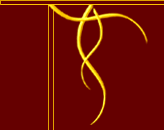|
HWA TOW Acupuncture & Traditional Chinese Medical Clinic
2008 S. Cooper St. Arlington, TX 76013 (817) 261-9919
 And we know that in all things God works for the good of those who love him, who have been called according to his purpose. Romans 8:28 And we know that in all things God works for the good of those who love him, who have been called according to his purpose. Romans 8:28
Questions and Answers for ACUPUNCTURE
Q: What is Acupuncture?
A: Acupuncture is the insertion of fine needles into specific points of the body. Points are chosen to treat specific health problems. These points have been mapped by the Chinese over a period of two thousand years. Recently electromagnetic research has confirmed their locations. According to Traditional Chinese Medical theroy, the basic energy force of life which flows through all living things is called Qi, pronounced "chee". This energy flows through channels, also called meridians, throughout the body. The acupuncturist observes manifestations of diseases and then locates points on the body which govern a particular reaction of the channel that is blocked. The acupuncturist stimulates those points to allow the Qi to flow freely again. In this way, acupuncture regulates and restores a harmonious energetic balance of the body.
Q: How Acupuncture Works?
A: According to Traditonal Chinese Medicine, acupuncture needles placed along acupuncture meridians(pathways), stimulating the body's healing Chi (energy). From Western medicine perspective, the needles trigger the nervous system, releasing painkilling and inflammation-reducing substances. When an acupuncture needle is inserted to our body, it will stimulate sensory nerves. The sensory nerve will trigger electical impulses to spinal cord nerves, which signals: 1. nerve cells to release endorphins (chemicals mute pain); 2. midbrain to discharge neurotransmitters (substances that block pain pathways); 3. pituitary gland to deliver endorphins and anti-inflammatory chemicals into the surrounding brain tissure and bloodstreams.
Q: What's the benefits of Acupuncture?
A: Acupuncture is recognized by the National Institute of Health (NIH) and the World Health Organization (WHO) to be effective in the treatment of a wide variety of medical problems. Below is of disorders for which acupuncture may be effective:
Muscle, Bone and Nerve Pain and Disease
Back Pain
Leg Pain
Foot Pain
Stiff Shoulders and Neck
Lumbago
Sciatica
Tennis Elbow
Carpal Tunnel Syndrome and painful joints
TMC; Toothache
Headace and Migraines
Rheumatism; Arthritis
Facial Paralysis; Bell's Palsy
Internal Medicine
Stomach Ache
Indigestion
Chronic Diarrhea
IBS (Irritable Bowel Syndrome)
Constipation
Allergies; Sinus
Asthma
Gynecological Disorder
Menstrual Pain and Cramping
PMS
Menopause
Infertility
Emotional and Sleep Disorders
Stress
Anxiety
Depression
Insomnia
Fatigue
Addictions
Tobacco
Narcotics
Alcohol
Weight Loss
Q: Does Acupuncture have any side effects?
A: One of the significant advantages of acupuncture is the absence of side effects as long as it has been properly applied. This is in contrast to many Western medicine in which severe side effects in certatin cases may be worse than the disease being treated.
Q: How Acupunctue feels?
A: Acupuncture needles are very fine, about the size of the thin hair. Different sensation such as dissention, tingling, or electric-like sensation, either around the needle or travelling up or down the affected meridians may be felp. In any case, if you experience any discomfort, it is usually mild.
Q: Number of treatments?
A: Since each person is unique, the number of treatments will vary depending on the nature of the complaints, its severity, how long it has been present (whether the condition is chronic or acute) and the vitality of the person.
Q: What type of needles is used?
A: Only sterilized, individually package, disposable needles are used. Needles are not saved nor reused for later treatment. This practice eliminates the possibility of transmitting a communicable disease by contaminated needle.
|





















